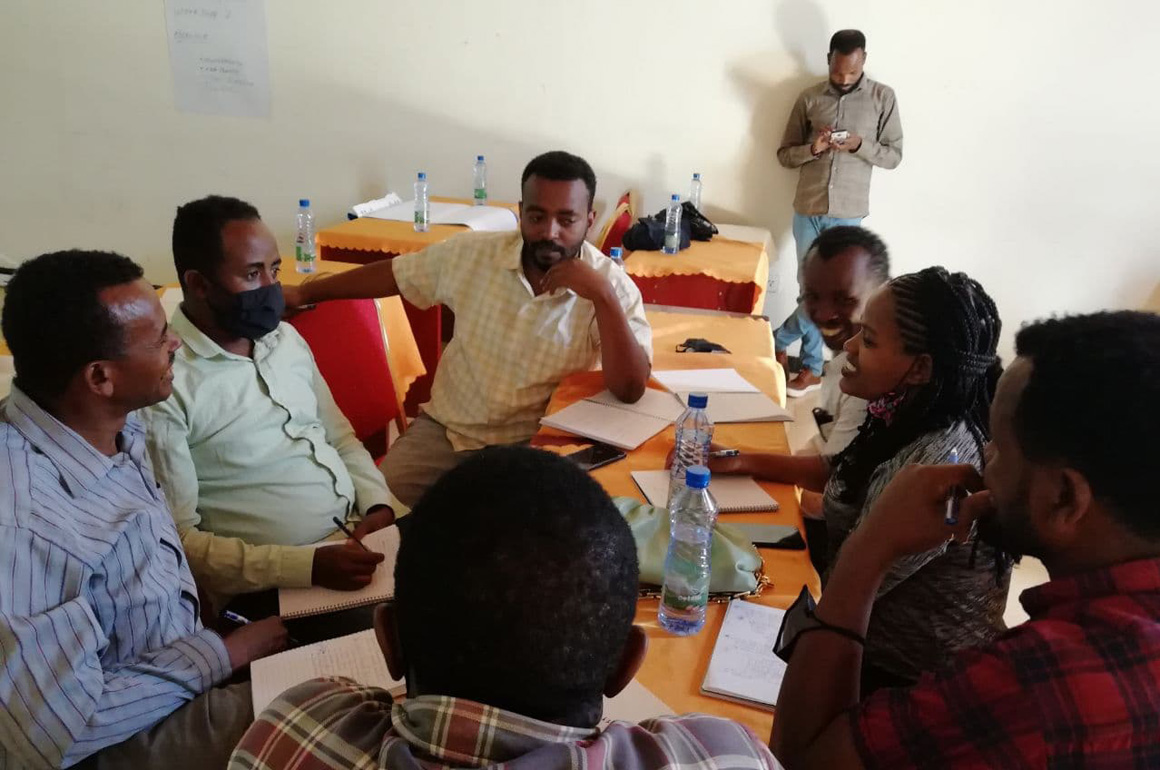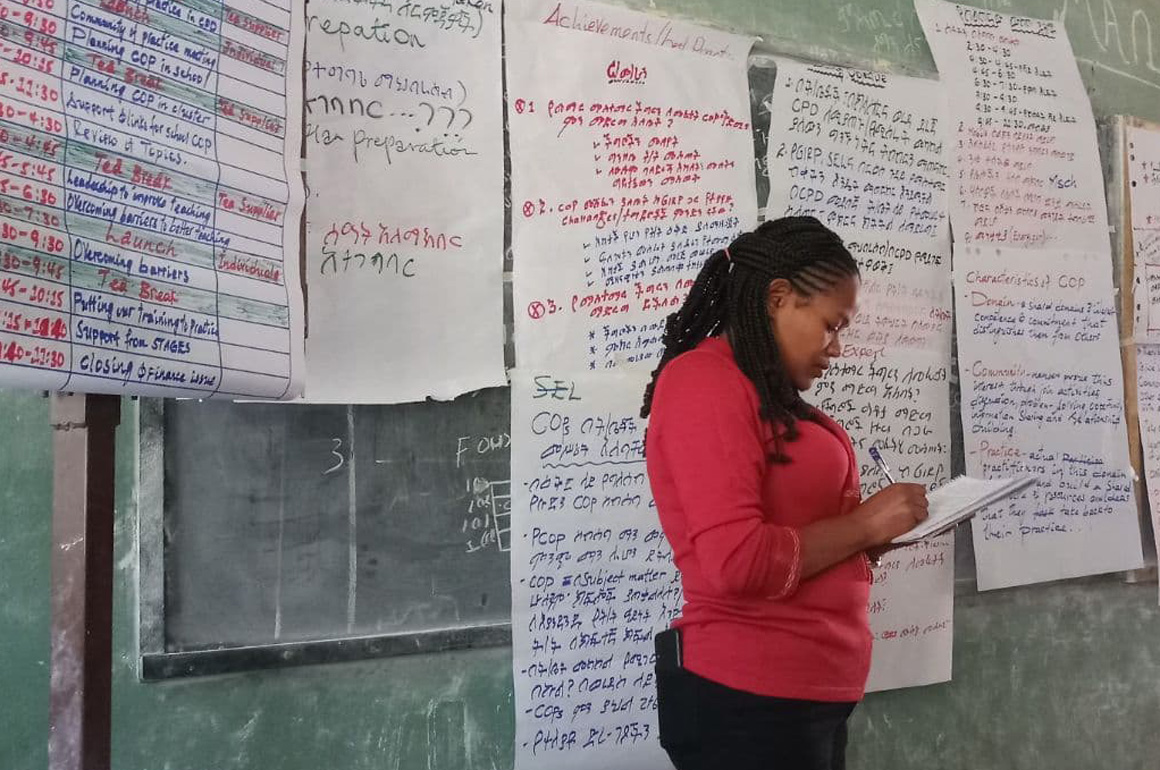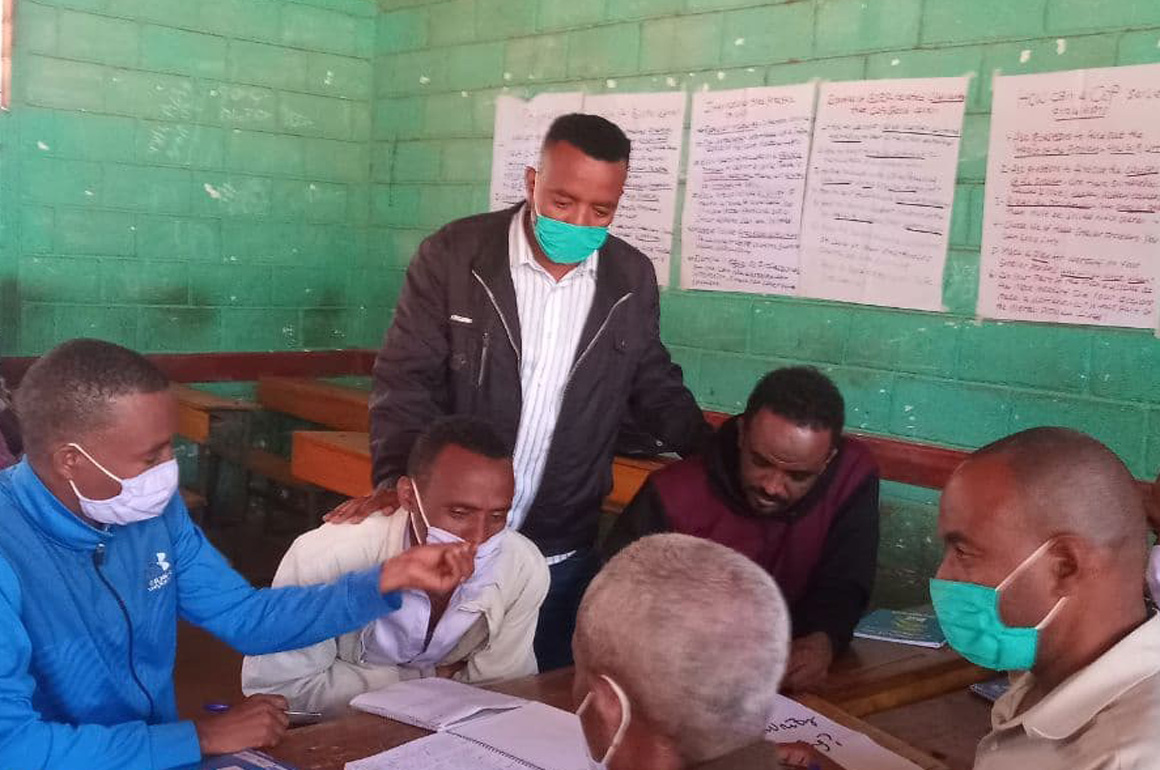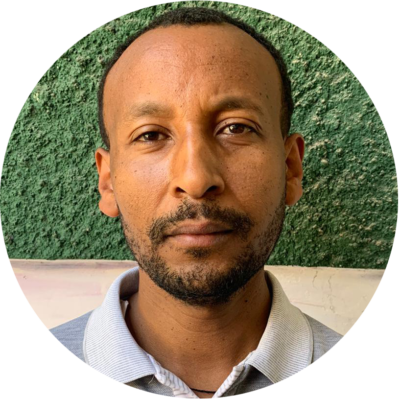Link Education Ethiopia, particularly through its girls’ education project, is investing a lot to improve the capacity of school leadership. This work is instrumental in improving learning outcomes by setting strategic goals, influencing teachers’ behaviour and motivation, and mobilizing resources. It does so while keeping teachers and learners focussed through respectful monitoring, support and guidance.
This is also evidenced by our latest evaluation findings in which a significantly higher proportion of teachers reported that district officials, cluster supervisors and school leaders were more responsive to girls’ education needs now compared to the project start. Similarly, the project’s two rounds of internal monitoring assessment results indicated improvement in school leaderships’ capacity by having a classroom visit schedule and using a checklist to monitor and support teaching quality.

Ms. Eyerusalem Simon, a deputy school director in Bedessa secondary school in Damot Woide district, was one of the school leaders who participated in the Pedagogical Leadership training. Three years ago, looking at the challenges of female students in the education system, she decided to take the school leadership position.
She witnessed that, “receiving different trainings related with pedagogical leadership training and others from the project supported me to be an instructional leader. Leadership and learning are indispensable to each other. Without good instructional leadership, schools will not bring the intended learning outcomes at all levels.”
Eyerusalem attended a training of trainers which was organized by Link. She said that, “due to the capacity building support that I received from Link, now I have improved my self confidence, communication and problem solving skills. This support also gave me the experience of working towards better results in my leadership position.”

Mr. Biruk Boltana, another pedagogical leadership trainer and cluster supervisor at Bedessa secondary school attested for the instructional leadership performance of Eyerusalem. He said that, “she is one of the best female instructional leaders in our district. Female students and teachers are motivated because of her instructional leadership. [Female students] approach her without any fear and speak to her for any challenges and for the support they need.”

Mr. Biruk said that, “before these types of pedagogical leadership trainings, educational leaders were more focused on management roles. Whereas, the pedagogical leadership training that we received from the project is a type of leadership training that causes school leaders to be strongly involved in instructional issues that have direct links with learner achievement and who prioritize teaching and learning at the top of their list.”

